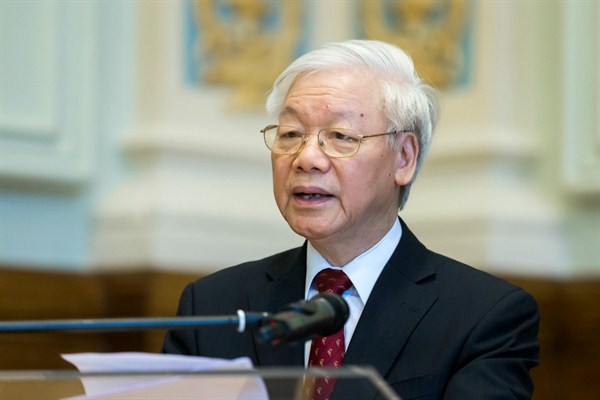When President Tran Dai Quang of Vietnam died suddenly last month, shortly before he was scheduled to visit New York and address the United Nations General Assembly, the usual condolences poured in from foreign dignitaries. But the news did not prompt grief among human rights watchdogs, who have criticized Vietnam’s brutal suppression of political dissent. Phil Robertson, deputy director of the Asia division at Human Rights Watch, summed up his reaction in two words: “Good riddance!”
Quang, a security sector apparatchik who rose through the ranks to become minister of public security, was elevated to the largely ceremonial post of state president in 2016. His death was not unexpected, given his ongoing treatment for a serious illness since last year, and his public appearances had lessened in recent months, giving Vietnam’s political elites plenty of time to consider the question of succession. In a somewhat surprising decision, they chose Communist Party General Secretary Nguyen Phu Trong, who was unanimously nominated by the Party’s Central Committee to serve concurrently as president until the term for both offices expires in early 2021.
The move, which was formally approved by Vietnam’s rubber stamp National Assembly today, has left some observers questioning whether the Vietnamese leader will now consolidate power in the mold of Chinese President Xi Jinping. While Vietnam’s opaque political system makes predicting future developments difficult, this seems a bit of a stretch for the 74-year-old Trong, who is widely expected to step down at the end of his term.

